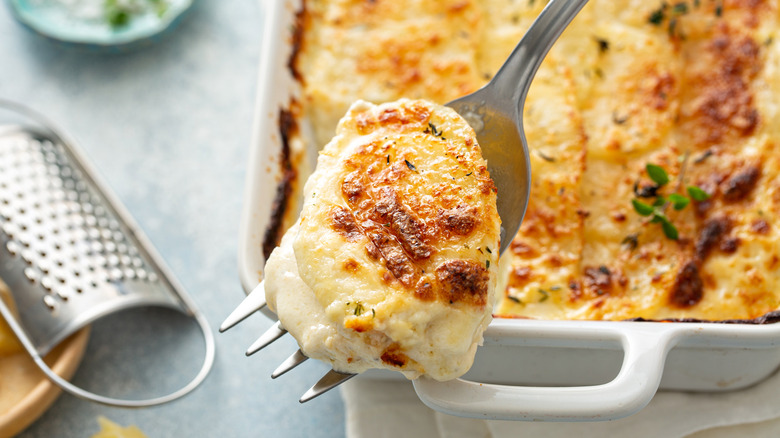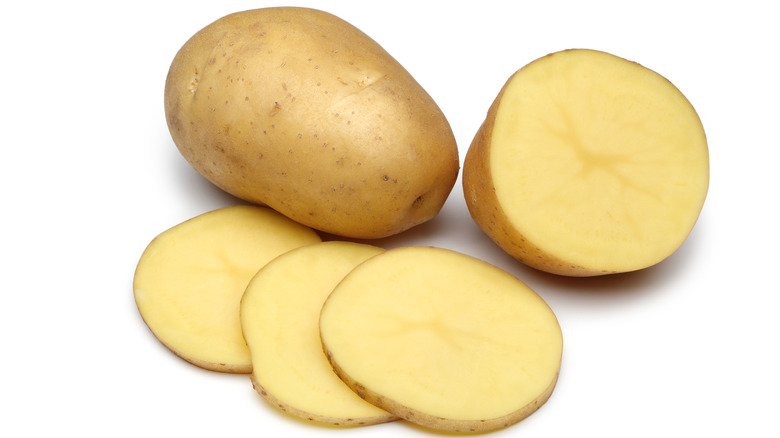The Main Ingredient Could Be To Blame For Watery Scalloped Potatoes
If you've ever scooped a serving of scalloped potatoes onto your plate, only to realize that the decadent sauce is somewhat diluted, you're not alone. It happens to the best of us, and before you blame your sauce-making skills, surprisingly enough, there's a possibility it's not the sauce's fault. It's best to take a look at the key ingredient at play: the potato.
That's right, the texture of the dish and the integrity of the sauce can depend on the type of potato you used. If you chose to incorporate red bliss, blue, purple, or fingerling potatoes, these are of a waxy, low starch variety that actually contains higher levels of moisture. Because of this, the low starch content has a harder time thickening the sauce, and the high moisture releases natural water to inevitably loosen your creamy sauce and water it down during exposure to heat.
In addition, potatoes of the waxy variety tend to not cook up nearly as tender, yielding a harsher texture when biting into your cooked casserole. On the contrary, while potatoes from a can or pre-sliced potatoes seem to be an easy add-in, they can often release excess moisture due to their exposure to preservatives. Therefore, it's best to use fresh potatoes that have a high starch content with low levels of moisture, which include Yukon Gold and russet potatoes.
Depends on the variety of potato
Because Yukon Gold and russet potatoes contain a low amount of natural water content with high amounts of starch, when they are sliced, coated in a creamy sauce, and baked until tender, their excess starch will release during the cooking process and in turn, thicken the sauce so that it clings to the potatoes much easier.
Furthermore, because these varieties have a low amount of moisture, there is less water to release during their time in the oven, allowing the sauce to concentrate in flavor without any risk of dilution.
Sure, when slicing your potatoes thin in preparation for scalloped potatoes, you'll want to soak them in water to prevent them from browning in the meantime. This is normal, but a step that many skip that can lead to trouble is not patting the potato slices dry completely.
Any residual water that carries into the dish will affect the sauce, so it is crucial to fully drain your sliced potatoes and press them with paper towels until their surfaces are dry entirely.

